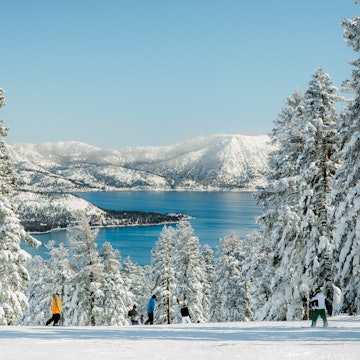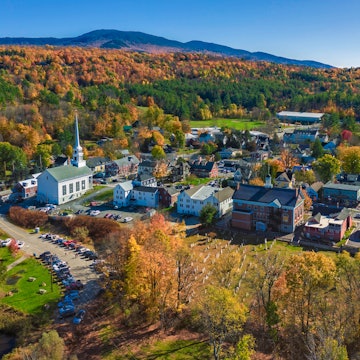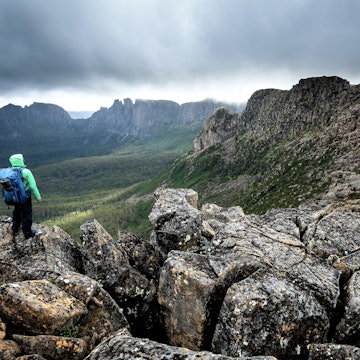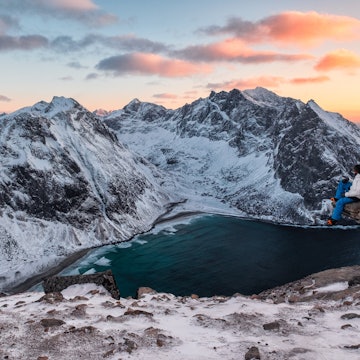

With a name like the Salmon River, you know the fish will be biting throughout the year © Samson1976 via Getty Images
Perhaps nothing encapsulates the beauty of Oregon more than the picture of a coho salmon running upstream, or the image of a steelhead glistening as it vaults a waterfall. Long before the boundaries of the Pacific Northwest’s greatest state were formed, salmon have been the bedrock of the fragile yet flourishing ecosystem that makes Oregon a unique destination.
Even today, salmon are the symbol of Oregon’s waterways, the living example of a species that is both ecologically necessary and culturally coveted. To the fly fisher, catching a salmon on a fly rod represents the chance to take part in a story that extends far beyond the experience of a single angler. While fishing this incredible species is a privilege to be handled with great care and attention, the chance to catch a salmon with something as miniscule as a fly is no doubt the chance of a lifetime.
10 rivers in Oregon for fly fishing
Whether you’re new to the pastime of fly fishing or an expert looking to shake up your routine, here are 10 of Oregon’s best waters for hooking into a salmon this fall and winter.

Rogue River
The inspiration for one of Oregon’s most famous breweries, the Rogue River offers its own stash of salmon to the patient and willing angler. Notable for its run of King Salmon, the Rogue River is best fished near the coast, where the salmon run from late summer into the fall. Freshwater-bound Kings can range from 20-50 pounds, and may provide some of the most challenging yet rewarding fishing on the Oregon coast. Also popular in the Rogue River is the fall run of Chinook salmon, which are present in the chilly waters all the way through December. For those hoping to keep their salmon, the limit is two per angler per day in the Gold Beach area.
Coquille River
Known for both its king and coho runs, the Coquille River is a less-frequented salmon fishery that provides anglers the opportunity to spend more time practicing their casts and presentation than fighting for spots along a crowded bank. King salmon may be caught in late summer through October, with coho beginning their run in the middle of September. Anglers looking for a fight should start by chasing the elusive coho, who are extremely aggressive and remain active into the early winter.

Nehalem River
Located just between the Tillamook Bay and Columbia fisheries, the Nehalem River sees slightly less action than its two more popular cousins, but that doesn’t mean the fish aren’t there. With annual runs of coho and Chinook in the fall months (from September through December), the Nehalem is a popular spot for Oregon fly fishing, as anglers are allowed the chance to test their salmon fishing skills in a variety of formats. Whether from a drift boat on the fly or via direct wading into shallower regions of the waterway, there are multiple ways to hook a fish in this rumbling river. Depending on the fall rains, the best of the fishing season can often extend into November, with a few stragglers being caught in the colder months.
Related content: Fly fishing and beyond: 8 Montana adventures
6 Oregon hot springs where you can melt your troubles away
Nestucca River
One of Tillamook Bay’s lesser-known rivers, the Nestucca is a prime Oregon fly fishing destination where an angler can catch fall Chinook salmon from the middle of September through December 31. Fishing is often best closer to the Bay in the early season, although as the rain continues to pick up into the winter, the Chinook are drawn upstream making the upper portion of the river favorable to anglers as well. While there are a plethora of opportunities to fish in the Tillamook Bay area, the Nestucca continues to be one of the top fisheries in the region. Local limits in the fall are two per day and 10 per season, which helps to guarantee a flourishing future for the eco-critical salmon population.

Sandy River
The Sandy River makes the list not only for its fishability and friendliness to anglers of all skill levels, but for its proximity to the Portland metro area. At just 40 minutes away from downtown Portland, the Sandy River, running through Oxbow Regional Park, offers anglers the chance to catch coho throughout the fall, and even the occasional Chinook. While not quite as populated as some other rivers closer to the coast, the Sandy, originating from the icy slopes of Mt. Hood, is a great place to try your hand at fly fishing without the time investment of an hours long drive.
Umatilla River
Thanks to the restoration efforts of the tribes of the Umatilla Indian Reservation, the Umatilla River (located in Northeast Oregon) is another Oregon fly fishing staple, with healthy runs of coho and Chinook, the latter of which is most apt to be hooked in the fall season. The best place to search for the coveted salmon is on the lower reaches of the river, just before it reaches the Columbia at Lake Umatilla. As with most of the Chinook-friendly rivers in Oregon, the best time to fish the Umatilla is the middle of fall, with both coho and Chinook catchable until December. For winter anglers, steelhead are also in play from November on through the coldest months of the year.

Umpqua River
Chinook fishing on the Umpqua is excellent in the fall, with the typical season ranging from September through October, and occasionally into November. When the fish are biting, the Umpqua is as pristine a river as any when it comes to Oregon fly fishing, and its wide flow makes it ideal for drift boats and anglers who are comfortable fly fishing in deeper waters. That said, what makes the Umpqua ultra-fishable is its winter steelhead population, which provide ample opportunities for anglers who missed the salmon run, or would prefer to practice their skills by hauling in a 20-pound ocean-grown rainbow trout. While steelhead aren’t technically salmon, they fight nearly as hard and are extremely well populated throughout the northern waters of the Umpqua.
Sieltz River
A year-round fly fishing river that spans the Oregon coast from Newport Beach to Lincoln City, the Sieltz boasts runs of Chinook in the fall and a great run of coho sometime in the mid-fall or early winter months. While hatchery salmon are common in Oregon, the Sieltz is home to mostly wild coho, meaning anglers should be careful to check for clipped fins prior to making a decision on keeping anything (wild fish must be released, per Oregon law). That said, for winter fly fishers the steelhead in the Sieltz are unbeatable, with strong runs of ocean-bred Rainbows from December all the way through March.

Salmon River
What better place to try grabbing a salmon on the fly than the Salmon River itself? This pristine, 34-mile river is a tributary to the Sandy, and is a bit smaller than some of the other rivers on this list, making it a great place to try your hand at fly fishing for salmon. Fall hatchery Chinook runs are popular in the mid-to-late fall, as are the winter steelhead runs, for which many an angler turn out. One of the best parts about fly fishing the Salmon River is the ease of access to the lower portion of the river, which is joined by highway 18 for many miles of its middle water and is crossed by highway 101 near its mouth. Whether you’re looking for a day trip to test your skills or a scavenger hunt for the largest salmon you can catch, the Salmon River is a great place to experience the Oregon fly fishing scene.
Columbia River
The Columbia River is a haven for anglers in Oregon, if not for its gratuitous size, then for its significant populations of salmon and steelhead that run through the famous Columbia River Gorge. Although run counts have been down in recent years, Chinook salmon are a prime target for anglers hoping to fish during the fall months and into the winter (usually through December 31st). Steelhead and coho may also be caught during the colder seasons, and can provide anglers a much-needed respite from the challenging sport of Chinook fishing. Due to the size and expanse of the Columbia’s wide banks, fly fishing is often best done on the Columbia via single or spey rod tactics, to allow for longer casts and a longer presentation to the fish, but the rewards for a catch are unmatched.















